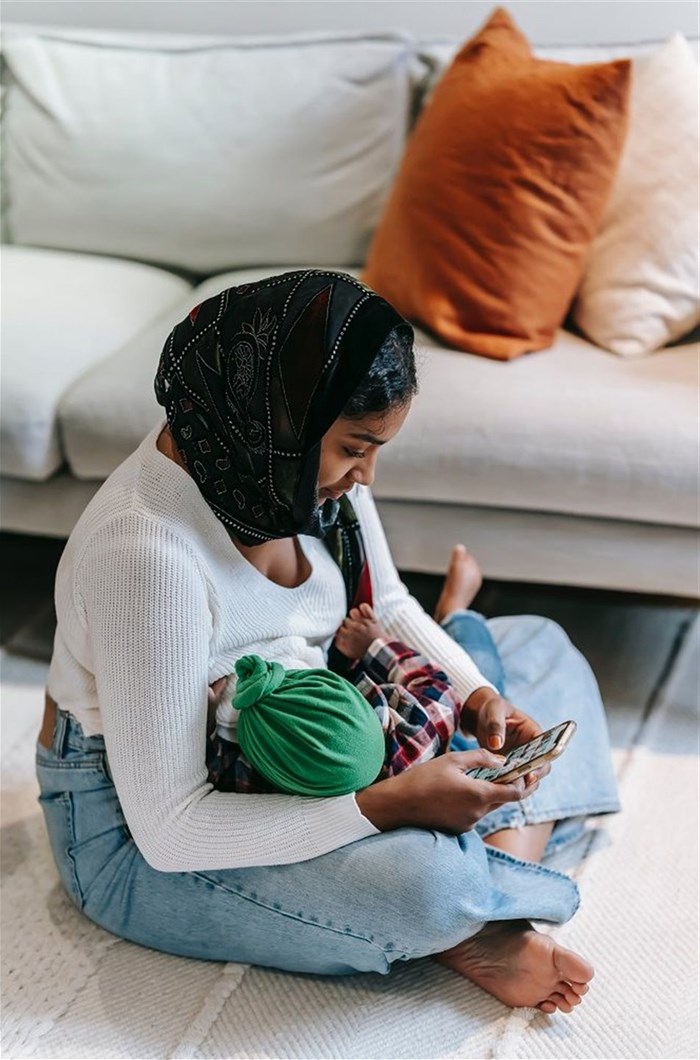
Top stories






More news


Marketing & Media
Ads are coming to AI. Does that really have to be such a bad thing?














Since these tech startups are geared towards improving access – to healthcare, in the case of Zoie Health and investing for Franc’s clients – the two were natural partners in this project, which aimed to help prospective mothers and fathers make sense of the financial planning required for parenthood. The findings of the companies’ survey were shared during a webinar which took place on 31 August 2023, moderated by Cassidy Nydahl, head of Growth at Franc, and which featured input from moms and financial experts, including Thato Schermer, co-founder and CEO of Zoie Health, Ess Mukumbo, personal finance creator and financial columnist, and Laura du Preez, CFP and editor at Smart About Money.
“The findings of our survey were interesting and informative, as well as useful,” comments Schermer, adding that budgeting was one of the issues she personally grappled with as a new parent. “We found it greatly encouraging that 52% of the women who took part in the survey feel that they are financially prepared for their children, and 61% had even set up a budget to help them manage the new household expenses associated with raising a child.”
The panellists noted that such a budget should consider costs that may increase (such as medical aid), new costs (life nappies and baby food), unexpected costs, such as purchasing a new car or a bigger home), and costs that may decrease, like entertainment and eating out.
“If you don’t have a budget, you need to start one as soon as you can,” Schermer urged. “Remember, though, that this is just the first step: you need to review the budget continually to ensure that you’re on track.”
Another interesting statistic revealed by the survey is that 65% of women feel that they would be able to handle any financial crisis that might arise during motherhood. Panellist Laura du Preez said that this was heartening, and added that it is possible to bolster confidence further by signing onto a medical scheme while still planning for pregnancy, especially if you would like to give birth at a private hospital. “Familiarise yourself with the benefits of the scheme, including the number of scans and birthing costs that are covered, and buy extra cover if necessary. You may also need to purchase gap cover to address any shortfalls in medical cover. This is important if you experience any complications in pregnancy and during birth.”
Once the baby has been born, you need to consider buying life and disability cover. “Add your children as beneficiaries on your life insurance, pension fund or retirement annuity,” Du Preez says. It’s equally important to draft a will, where you name a guardian for your child in the event that something happens to you and indicate how you would like your money to be managed if you pass while your child is still a minor.
Something else to think about is how to manage your money if you are earning less while on maternity leave – which is the grim reality facing 75% of survey respondents, who actually do not earn anything during this time. These women generally tend to be in a lower income bracket; indeed, only 20% of women earning over R55,000 per month do not receive paid maternity leave, compared with 92% of women earning less than R5,000.
While this may make financial planning difficult, employers are not obliged to pay their staff during the four months of maternity; the only requirement is that they will keep your job secure.
Du Preez notes that whether your maternity leave is paid or unpaid will have an enormous impact on your budget, so it’s critical to discuss this with your employer. Find out if they are willing to pay even a reduced salary during this time; if they will continue to pay benefits like medical aid and retirement fund contributions (if these are offered), or if there is a work-back clause that you must consider. “Finding a way to bridge the gap that appears when a double-income family suddenly has to rely on just one salary is crucial,” says Du Preez.
Worryingly, three out of four respondents (75%) had not set up a savings or investment account for their child’s future or tertiary education. Panellist Mukumbo says that it is vital to address this sooner rather than later. Even a small amount of R100 a month can grow with compound interest, after all.
Several vehicles are available for this. Mukumbo recommends passive unit trusts and index-tracking exchange-traded funds (EFTs), which are low-cost, diversified investments for future education costs. Tax-free savings accounts are good for long-term savings, but not ideal for covering education. Meanwhile, education policies are useful because they cultivate the discipline of monthly saving, but the drawback is that they have high fees and require regular payments. “It was clear that there was a lot of confusion and overwhelm around the theme of saving and investing for your child – with so much choice and conflicting opinions, how does a new mom make a decision for their child’s future?” comments Nydahl. “It’s something we’re hoping to solve at Franc, and Mukumbo and du Preez had some great advice that really cut through the clutter.”
“One of the hardest parts of becoming a parent is that so much is unknown. We hope that this information helps to provide some certainty in a world that suddenly looks very different,” Schermer concludes.
For more information, check out the complete report at https://www.franc.app/doc/Momconomics_Report_2023.pdf?utm_source=pr&utm_medium=press&utm_campaign=momconomics-september-2023